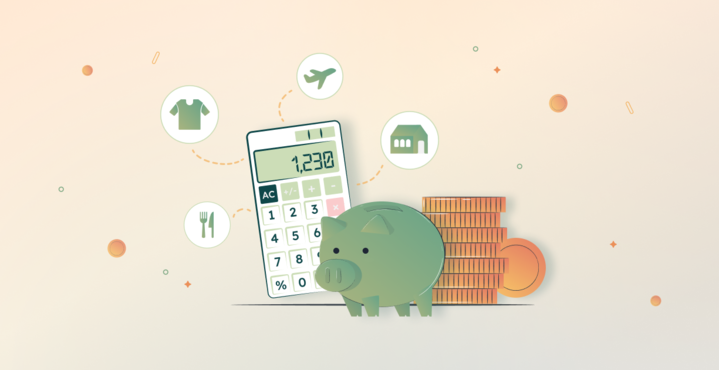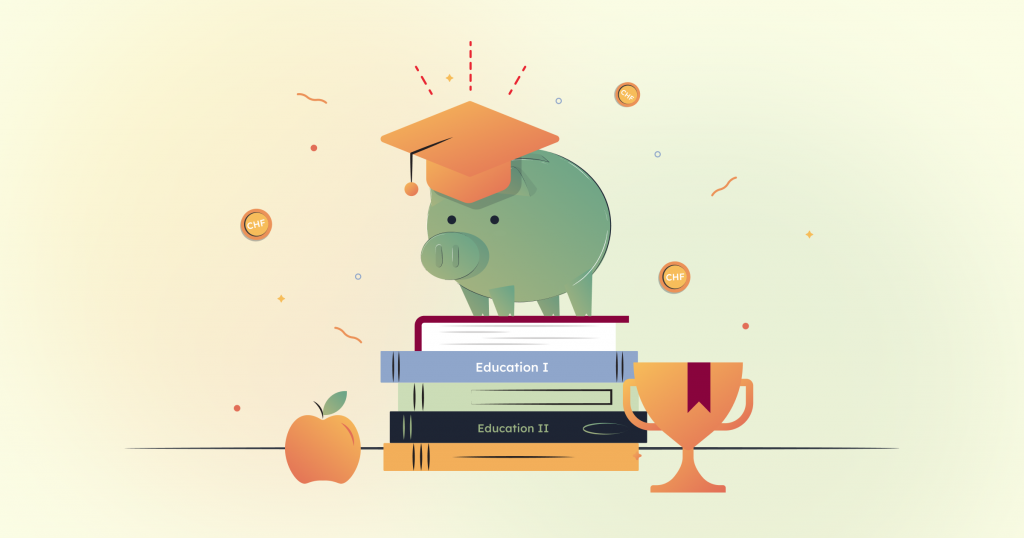The budget is your plan for how you and your family spend money and on what. In this blog post, you’ll find out how to budget smartly.
What is a budget and what is it for?
Your budget is your overall plan for your income and expenditure over a period X (usually a year). The basis of the family budget is the total regular income. You compare this with the various cost items.
True to the motto ‘A budget tells us what we can’t afford. But it can’t stop us from buying it anyway’, a budget can only give you an idea of how you should organise your spending. In the end, it’s up to you whether you actually follow this plan.
Take your time and draw up a clear budget. An overall plan helps you to know exactly how much money you can spend on what at any given time.
Either way, budget planning is an important first step. Don’t worry about getting it wrong, but simply see any misjudgements as the first step towards even better planning.
Why keep a budget at all?
There are essentially 2 reasons in favour of budgeting:
- Awareness: Only if you know how your finances really are you can make the right decisions and optimisations.
- Impulse control: If you have your budget in black and white, this will help you to avoid impulse purchases. Think about every purchase decision to see if it fits into your plan.
Budgeting correctly – here’s how
Budgeting requires a realistic estimate of your planned income, earnings, expenditure and costs. Bear the following in mind:
- Don’t plan based on gut instinct, but rather create your budget as precisely as possible based on pay slips, invoices, bank statements, research and calculations.
- Distinguish between fixed costs (e.g. rent including utilities, leasing, administration, insurance premiums, etc.) and variable costs (e.g. clothing, toiletries, but also food). The latter are the costs that are most likely to explode. However, they are also ideal for discovering potential savings.
- Create a new budget plan every year. Many people do this at the end of the year for the coming calendar year. After all, life is constantly changing and you will have to adjust your budget, e.g. if your family grows, your child starts school or your job changes.
- Also plan your savings goals into your budget. It’s best to set a monthly amount and set up an automated transfer.
- Use tools to organise your budget planning clearly. There are special apps for this, but a well-structured Excel spreadsheet or a traditional budget book can also be helpful.
For all those who subscribe to our monthly newsletter, we will be happy to send you an Excel template with a sample budget. Just write to us if you’re interested!
Think about different budget scenarios
In addition to the annual budget plan, you should also think about different scenarios. This can help you make better decisions, especially in volatile times.
For example:
Scenario 1: Everything stays as it is
Here you calculate your current income and current expenses. You check how much you can save at the end of the month or put into reserves.
Scenario 2: Additional costs
What happens if unexpected expenses arise, such as a car repair or an increased electricity bill? Or inflation suddenly rises sharply? In this scenario, you check how much buffer you need to cushion such expenses without putting too much strain on your savings.
Scenario 3: Income falls
Imagine that your income drops by 20 % – e.g. due to short-time working or a job change. In this scenario, you plan which expenses you could cut in order to continue to cover your fixed costs and build up reserves.
Good luck with your budgeting! If you have any further questions, please feel free to contact us.
Once you’ve mastered your budget, you can think about how much you have left to save for your child. Here are a few points of reference when it comes to saving for your child.




